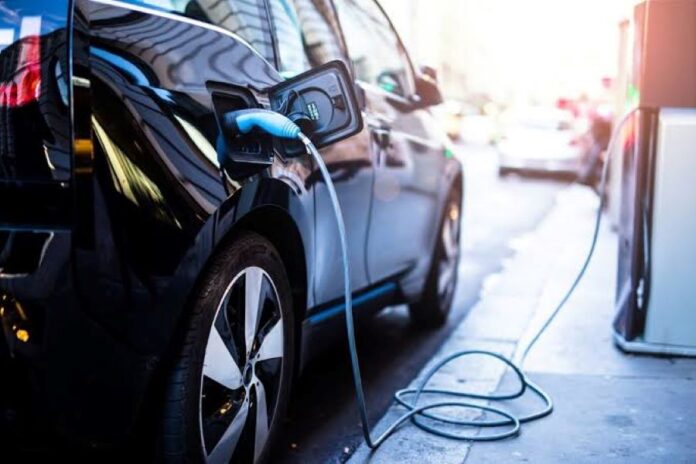
Tiempo de lectura aprox: 3 minutos, 13 segundos
In 2023, Mexico solidified its standing as a global automotive giant by receiving $7 billion in Foreign Direct Investment (FDI) for automotive manufacturing. This figure alone reflects the country’s longstanding position as a leader in internal combustion engine (ICE) vehicle production.
However, a more significant development in the same year was the announcement of an additional $16.3 billion in investments, primarily focused on the rapidly growing electric vehicle (EV) market. With investments pouring in from major players such as GM, Ford, Stellantis, BMW, Kia, and Audi, Mexico is not just adapting to the global shift toward EVs—it is positioning itself as a future leader in this sector.
Mexico’s transition from ICE to EV production is emblematic of its larger strategy to maintain its competitive edge in the global automotive industry. While it has been a longstanding leader in the production of ICE vehicles, particularly as the largest car exporter to the U.S., the country is now rapidly embracing the next wave of automotive innovation: electrification. This wave has been further propelled by substantial foreign investments in 2023 and into 2024, cementing Mexico’s role as a major player in EV manufacturing.
Building an EV Ecosystem
The shift in Mexico’s automotive sector toward electrification is not merely driven by proximity to the U.S. or trade agreements like the USMCA. Mexico boasts a well-established automotive ecosystem with a skilled workforce and a robust supply chain network. Over the years, this ecosystem has enabled automakers to scale their operations efficiently, and it is now being leveraged to support the rapid expansion of EV production.
Tesla’s decision to build a Gigafactory in Nuevo León is a testament to the confidence global companies have in Mexico’s capacity to support the EV revolution. Although the project has faced delays, the Gigafactory has already attracted over 100 key suppliers, reinforcing Mexico’s ability to become a critical hub for EV production. However, Tesla’s project is just one of many investments driving the country’s transition toward electrification.
EV Investments Across the Board
Other major automakers have also been ramping up their EV production in Mexico. General Motors is transforming its Ramos Arizpe plant in Coahuila to focus on EV production, signaling a major shift in its North American operations. Similarly, Ford has been producing the fully electric Mustang Mach-E in its Cuautitlán plant since 2020, demonstrating its commitment to electrification in the region. Stellantis is also making headway in the EV space, while BMW has announced plans to expand its San Luis Potosí facility to produce electric vehicles, further highlighting the country’s key role in the global EV supply chain.
Kia recently announced a $1 billion investment to expand its plant in Nuevo León to produce electric models, including the affordable EV3, which will play a key role in the North American market by capitalizing on U.S. tax credits. Audi is also preparing to shift production at its Puebla plant to focus on EVs as part of its larger electrification goals.
These investments highlight Mexico’s growing strength as a destination for EV production. The country’s ability to attract major investments is rooted not only in its proximity to key markets but also in its expertise, infrastructure, and supportive government policies that foster innovation and sustainability in the automotive sector.
Impact of U.S.-China Regulations
An additional factor driving investments in Mexico is the increasing regulatory pressure in the U.S. on hardware and software sourced from China, especially in the automotive sector. In response to these restrictions, automakers are reevaluating their supply chains, with many considering Mexico as a more secure and stable alternative for EV production. The U.S. Commerce Department’s stricter regulations on automotive software and hardware manufactured in China have accelerated this trend, making Mexico an even more attractive destination for producing EVs destined for the U.S. market.
This shift presents a significant opportunity for Mexico to capture a larger share of the EV market by offering automakers a solution to avoid supply chain risks associated with China. As a result, manufacturers like Kia, Ford, and GM are increasingly investing in Mexican plants to ensure compliance with U.S. regulations while maintaining proximity to one of the world’s largest EV markets.
Challenges and the Road Ahead
Mexico is embracing the shift from ICE to EV production head-on. The necessary infrastructure to support EV manufacturing at scale is being rapidly built, from upgrading energy grids to expanding Mexico’s capacity to produce EV batteries and other critical components. The influx of suppliers around the Tesla Gigafactory, despite some delays in its completion, highlights the dynamism of Mexico’s industrial capabilities and its readiness to support the demands of the EV revolution.
Mexico’s domestic ICE market remains robust, with competitive offerings from Chinese brands like BYD and Changan making inroads due to their affordability. However, the country’s focus is clearly set on becoming a key player in the global EV landscape. Major automakers are retooling factories, and workers are being upskilled to meet the growing demand for electric vehicles, further strengthening Mexico’s leadership in automotive production.
Conclusion
Mexico’s crossover from being an ICE leader to becoming a powerhouse in EV manufacturing is a testament to the country’s ability to adapt to global shifts in the automotive industry. With billions of dollars in investments and a clear strategy for the future, Mexico is well on its way to becoming a key player in the EV market. While Tesla’s Gigafactory has drawn attention and brought over 100 suppliers to Mexico, the broader story is one of a diverse array of automakers driving Mexico’s EV revolution. General Motors, Ford, Stellantis, BMW, Kia, and Audi are all investing heavily in Mexico’s future as a global EV hub. Additionally, the impact of U.S.-China regulations on automotive hardware and software has positioned Mexico as a key alternative for manufacturers seeking stability in their supply chains. With a solid manufacturing ecosystem, skilled workforce, and strong policy support, Mexico is positioned to redefine its role in the automotive world for the electric future.
Coloca Fitch en Observación Positiva nota de conglomerado Alfa







